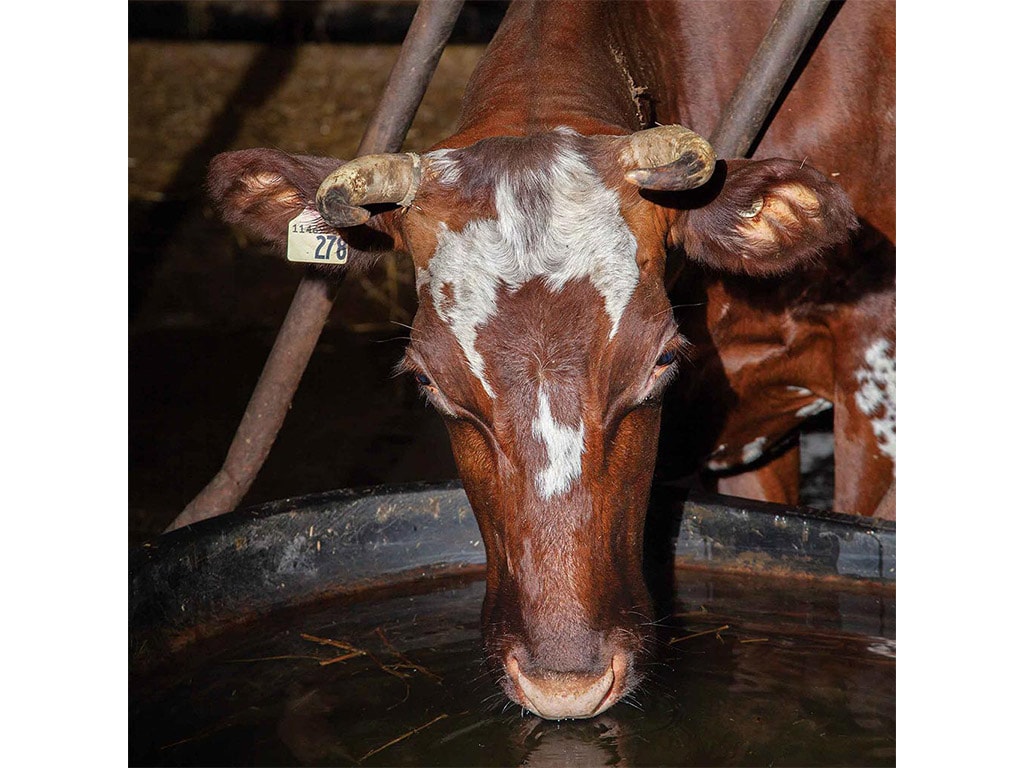Agriculture, Farm Operation March 01, 2024
Starting from Scratch
.
Finding success with flowers.
Common wisdom is that it's impossible to start a successful commercial scale farm operation without having a strong family farming background or deep pockets. That's largely true if you think farming only means growing field crops like wheat, corn, and soybeans. But Nick and Hilary VanderHeide of Delhi, Ontario, are proof that you can have a career in farming if you're willing to think outside of the box. They started farming in 2008; today their operation, Creekside Growers, is one of Canada's top dahlia producers.
The couple had no intentions of farming when the graduated from Redeemer University in Ancaster, Ontario. Nick had a construction company and Hilary was going to be a teacher. They purchased a 6.5-acre farm property near Hartford, Ont., mainly for the buildings to store construction equipment in. But this left them with some unused land. Hilary's parents suggested they follow in their footsteps and grow peonies for the cut flower market as a side gig.
"So, we started growing peonies as I was doing construction," Nick VanderHeide says. "But since we were living out in the country, meeting more farmers, and seeing their lifestyle, I decided that I wanted to start farming. This was a big change for a city kid who grew up in a subdivision. My dad was a mechanic. All the knowledge for growing peonies initially came from Hilary's parents."
The cut flower market flies under most farmers' radar but it's much bigger than anyone outside the industry imagines. Ontario and British Columbia producers, for example, sell 114 million cut tulips every year. Total cut flower sales in Canada alone are worth hundreds of millions of dollars. The vast majority of these are imported from Colombia and Ecuador, so it's tough for Canadian growers to be competitive unless they specialize.
"We were a bit of an Old Macdonald's kind of flower farm our first two years, growing a little bit of everything," VanderHeide says. "Through a process of elimination, we settled on peonies because they need our climate and dahlias because they are difficult to import. Peonies can't be grown in the south because they require a certain amount of cold and dahlias must be shipped in water so it's too expensive to ship them from down south."
Above. Nick and Hilary VanderHeide had no intentions of farming when they graduated from college. But after they bought a small farm primarily to have a place to store construction equipment, they started meeting more farmers and seeing their lifestyle. Nick decided he wanted to be a farmer. Today they're one of Canada's top dahlia growers. The largest portion of Creekside Gardens' sales comes from their wholesale cut peonies, dahlias, and other flowers through Ontario Flower Growers. Dahlia tubers make up the next largest segment.
They soon outgrew their Hartford location and moved to their present site near Delhi in 2017. The couple now operates five separate ventures under the Creekside Growers umbrella, VanderHeide explains. These include a greenhouse-grown cut dahlia enterprise for the early and late flower markets; an outdoor-grown cut dahlia and peony enterprise; another avenue is the propagation of dahlia tubers for wholesale, retail, and direct-to-consumer markets across Canada; and the fourth focuses on agritourism and direct-to-consumer farm store sales. Hilary also provides florist services for weddings, funerals, and other events.
The largest portion of their sales comes from their wholesale cut peonies, dahlias, and other flowers through Ontario Flower Growers, VanderHeide says. Dahlia tubers make up the next largest segment. About 50% of sales are in Canada; the remainder go to the U.S.
The growing season at Creekside Gardens starts in January when they plant their greenhouse dahlias and it runs through late November. They pack and ship dahlia tubers across Canada from February through April. They then pivot to cutting greenhouse-grown dahlias at the end of April until the end of November. May has them juggling cutting greenhouse flowers, planting their outdoor flowers, and keeping an eye on their peonies as they come out of the ground as their cut season is short and time sensitive. The field-grown dahlias start flowering mid to late-July and continue until October when they start packaging tubers.
"Looking back, we were crazy to have gotten into the cut flower industry when we did," VanderHeide says. "It was a time where there was lots of consolidation. We couldn't have done it without the help of Hilary's parents. No banks were willing to touch us because we had no farming knowledge and the flower industry was struggling from 2008 to 2010. So, her parents helped out a lot during our first 10 years. Once we had proven ourselves and had a solid track record, that allowed us to approach Farm Credit Canada for our future expansion needs. They've been terrific ever since." ‡
Read More

AGRICULTURE, SUSTAINABILITY
Water Reservations
Tribe works to get enough water to their farm and ranch land.

AGRICULTURE, LIVESTOCK/POULTRY
A Matter of Quality
Water management pays big dividends.




